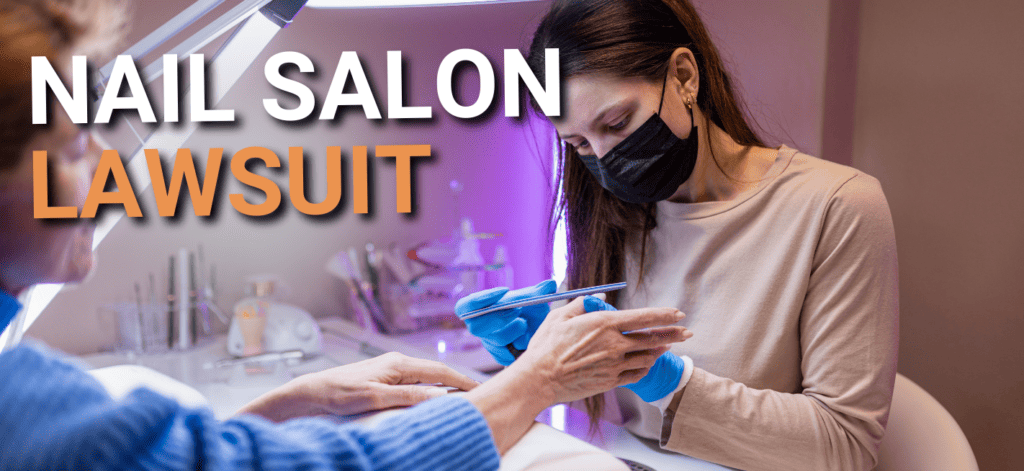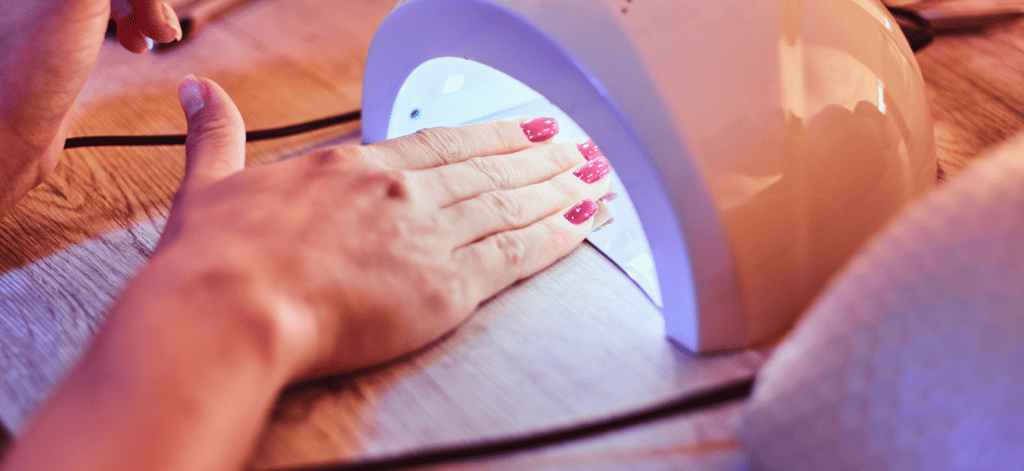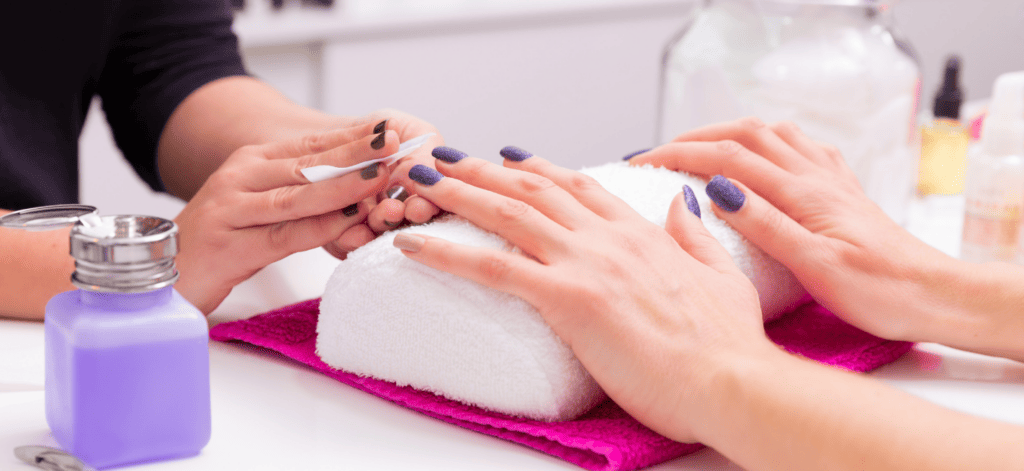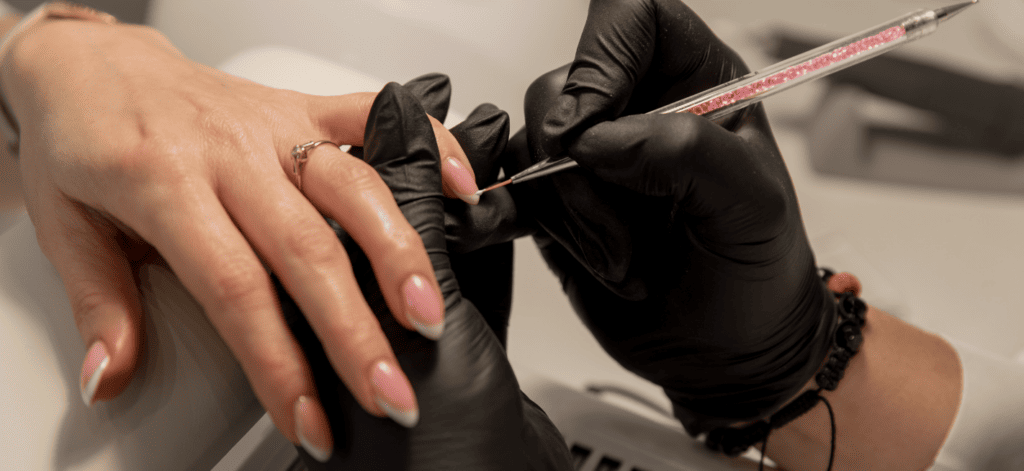Nail Salon Lawsuit Settlement: Legal Remedies for Your Infection
In the vibrant world of beauty and self-care, nail salons have long been cherished retreats, offering a haven for individuals seeking pampering and aesthetic refinement. These lively establishments, providing an array of services and trendy styles, play a crucial role in modern grooming routines. However, a disconcerting trend has emerged, bringing the term “nail salon lawsuit settlement” to the forefront of discussions. Nail salon infections, once brushed off as occasional and minor, have now become a significant concern, disrupting the serene experience patrons expect.
The rise in nail salon infections is tied to lax hygiene standards, encompassing poor sterilization practices and substandard product use. Ranging from mild irritations to severe bacterial and fungal infections, these consequences extend beyond cosmetics, impacting overall well-being. Ethen Ostroff Law steps in as a dedicated advocate, specializing in nail salon lawsuit settlement. The mission is clear: guide and support victims of salon infections. As the legal landscape evolves, we stand ready to provide unwavering support and a path to justice for those seeking recourse and resolution in the face of salon negligence.
The Growing Problem of Nail Salon Infections
Nail salon infections are a growing concern, backed by studies showing a high prevalence. For instance, a Journal of Chemical Health and Safety study revealed that 52% of participants experienced dermal or fungal symptoms after salon visits. Another survey found that 70% of nail salon workers encountered clients with nail infections. The problem stems from poor hygiene, insufficient tool sterilization, and the use of subpar products. Recent statistics emphasize urgency, calling for increased awareness and proactive legal measures to tackle this issue empathetically.
Main Causes of Nail Salon Infections
When individuals visit a nail salon, they anticipate a relaxing and clean experience. Unfortunately, the increasing concern revolves around the risk of infections, primarily attributed to factors like hygiene practices, product quality, and overall salon cleanliness. It is vital for both salon owners and clients to grasp the following causes to minimize risks and ensure a safe salon environment:
- Improper foot spa maintenance: Inadequate cleaning and disinfection of foot spas can breed bacteria, leading to fungal infections and skin issues.
- Inadequate cleaning of surfaces: Surfaces not regularly cleaned and disinfected promote the growth of bacteria and fungi.
- Lack of employee training: Insufficient training among salon staff in hygiene and infection control helps spread infections.
- Nail technician health: Nail technicians with health issues may unknowingly transmit infections to clients.
- Poor sterilization practices: Inadequate sterilization of tools, like clippers and files, is a primary cause of infections. Without proper cleaning and sterilization between clients, bacteria and fungi can easily transfer.
- Poor ventilation: Poor salon ventilation contributes to the accumulation of airborne particles, heightening the risk of respiratory and skin infections.
- Use of contaminated products: The use of low-quality or contaminated nail care products, including polishes and gels, introduces harmful microorganisms to the nails and surrounding skin.
Understanding and addressing these causes are crucial for maintaining a safe environment in nail salons, prioritizing the well-being of both clients and salon staff.

Common Infections from Nail Salons
Visiting nail salons can sometimes lead to various infections, such as:
- Bacterial infections: Cuts during manicures or pedicures may cause bacterial issues like paronychia or infections from mycobacteria and MRSA.
- Bloodborne diseases: There is a risk of bloodborne diseases like hepatitis B and HIV.
- Contact dermatitis: Some may experience skin reactions due to products like acrylic nails, nail glue, and polish.
- Fungal infections: Contact with contaminated surfaces or tools can lead to fungal issues with symptoms like nail discoloration and thickening.
- HPV virus: Warts on hands and feet may result from the HPV virus.
- Tool-related infections: Sharing unsterilized tools may spread bacteria and fungi, including MRSA.
- Footbath-related infections: Mycobacteria, causing infections in footbaths, have been found in salon whirlpools.
- Common respiratory infections: Nail salons may also be linked to the spread of common cold and influenza viruses.
Being aware of these potential infections is essential, and practicing good hygiene can contribute to a safer salon experience for everyone.
Recognizing Nail Salon Infection Symptoms
Symptoms of a nail salon infection can differ based on the type.
For a fungal infection, common signs include:
- Bumpy or ridged nails with crumbly debris
- Complete nail loss
- Lifting of the nail
- Nails veering off to the side
- New white or yellow patches, streaks, or changes in color
For bacterial infections, watch out for:
- Hand pain and discomfort in finger movement
- Painful, swollen, red skin near the infected area
- Redness, swelling, pain, or pus around the nail
Contact dermatitis may present with:
- Itching
- Redness
- Skin irritation
If you suspect an infection, get professional care from a dermatologist or healthcare provider for prompt and effective treatment.
Treating Nail Salon Infections: Practical Tips
To treat nail salon infections effectively, consider these simple steps:
- Seek medical help from a professional. You might need a prescription for an oral antifungal or antibiotic.
- Take your acrylic nails off if you suspect a fungal infection from them. Wash the area with soap and water.
- Try prescription medications.
- Try simple at-home tricks like soaking your nails in warm water and vinegar, using oregano oil, or using Listerine for fungal issues.

Caring for Your Nails at the Salon
A little care goes a long way toward keeping your nails happy and infection-free. To keep your nails safe and healthy at the salon, consider these caring steps:
- Avoid callus filing: Filing calluses can create cuts, increasing infection risks. Consider skipping this step.
- Avoid shaving before a pedicure: Shaving can cause small cuts, increasing the infection risk. Consider holding off before your pedicure.
- Bring your tools: Bring your nail tools to be sure they are properly sterilized.
- Choose a trusted salon: Pick a salon that follows health regulations and has a reputation for cleanliness.
- Do not cover up an infected nail: Polish or artificial nails can worsen an infection, so let your nails breathe.
- Professional help: If you suspect a nail infection, reach out to a podiatrist or healthcare provider for expert care.
- Skip the footbaths: Footbaths can harbor bacteria and fungi, so avoiding them is a good idea. If you must use one, ensure its properly cleaned between clients.
- Use anti-fungal sprays and powders: As a precaution, use anti-fungal sprays and powders before and after your salon visit to fend off potential infections.
Nail Salon Hygiene Tips
Creating a safe and healthy salon environment is important for everyone involved. Here are some simple tips for maintaining hygiene:
Nail Salon Hygiene Tips
Creating a safe and healthy salon environment is important for everyone involved. Here are some simple tips for maintaining hygiene:
- Clean foot spas between clients and maintains their condition.
- Conduct health checks for staff, support sick leave, and protect those with skin conditions.
- Cover any cuts with bandages to prevent infections for a safe experience.
- Disinfect nail tools before and after use.
- Educate technicians and clients on proper hygiene.
- Encourage Hepatitis B vaccinations for technicians.
- Ensure good ventilation and promote a fresh salon atmosphere.
- Ensure technicians wear gloves for hygiene and skin protection.
- Implement a routine cleaning plan with effective disinfectants.
- Keep the salon clean, well-ventilated, and organized.
- Promote hand hygiene before and after services.
- Properly dispose of materials to minimize infection risks.
- Regularly sanitize surfaces like nail tables and chairs.
- Source products from reliable suppliers and uphold quality standards.
- Train staff in hygiene, sterilization, cleanliness, and protocols.
Consequences of Poor Nail Salon Hygiene
We can create a safer and healthier environment for everyone in the nail salon by emphasizing and practicing proper hygiene and avoid the following consequences:
- Legal and regulatory consequences affecting the salon’s reputation and operations.
- Skin and respiratory reactions, posing health concerns.
- The spread of harmful bacteria and viruses, posing a threat to everyone in the salon.
- Spread of infections, affecting both workers and clients.
- Weakened nails impacting their health and strength.
Nail Salon Disinfection Guidelines
Ensuring a safe and healthy environment for clients is crucial for nail salons. To meet this goal, there are important guidelines related to disinfection laws that salon owners and technicians should be aware of. Here is a simple breakdown:
- Board of Cosmetology: State boards oversee cosmetology practices, setting rules for disinfection, training, and inspections in salons.
- Client notification: Salons may need to inform clients about disinfection practices to build trust. Display information about these procedures.
- Environmental Protection Agency (EPA): Salons must use EPA-approved disinfectants according to product label directions, regulated by the Agency, for public health and environmental safety.
- Inspections and Compliance Checks: Authorities may inspect salons for compliance. Being prepared for inspections and keeping records handy is important.
- Occupational Safety and Health Administration (OSHA): Nail salons must follow OSHA standards for safe workplaces, including proper disinfectant use and waste disposal.
- Record-keeping: Salons must maintain records on disinfection practices, documenting when tools were sterilized, the types of disinfectants used, and staff training.
- State regulations: Each state has specific rules for nail salon health and safety, providing guidelines for disinfecting tools, surfaces, and foot spas. Salons must use approved disinfectants and ensure staff are trained accordingly.
- Training and certification: Some states may require disinfection training for nail technicians. This may involve courses and certification to ensure proper practices.

Consequences for Violating US Nail Salon Rules
Salon owners and technicians must follow US nail salon laws to uphold a safe and respected environment. Failing to do so may result in the following penalties:
- Civil lawsuits: Clients or affected parties may sue nail salon by filing a civil lawsuit for damages. Salons found liable may be required to pay damages to those affected.
- Closure orders: Authorities may issue closure orders, temporarily shutting down the salon until all violations are rectified.
- Corrective actions: Authorities may require salons to take specific corrective actions to address violations, proving compliance through documentation and inspections.
- Criminal charges: Serious violations may lead to fines, probation, or imprisonment, depending on the severity.
- Education and training: Salons may be required to undergo additional training to improve compliance, showing a commitment to following regulations.
- Fines: Monetary penalties can be imposed based on the nature and severity of violations, ranging from hundreds to thousands of dollars.
- Increased scrutiny: Violations may lead to increased regulatory scrutiny, with authorities monitoring the salon more closely through frequent inspections to ensure ongoing compliance.
- License suspension or revocation: Regulatory authorities may temporarily or permanently revoke the salon’s operating license.
- Probation: A salon may be placed on probation, facing increased scrutiny and compliance checks.
- Reputation damage: Violations can harm a salon’s reputation, leading to a loss of clients and business.
Can you sue a nail salon for infection?
If you are wondering, “Can I sue a nail salon for infection?” the answer is, “Yes,” especially if you have suffered an injury. The success of such a case often relies on the expertise of your legal representation. An experienced personal injury attorney is crucial. They will help prove negligence by the salon and demonstrate how it led to significant harm, ensuring you receive the maximum nail salon lawsuit settlement.
Grounds for Nail Salon Lawsuit Settlement
Nail salon infection lawsuits usually stem from key legal grounds, including negligence, breach of duty, and related factors. Here are the main foundations on which individuals may build a nail salon lawsuit settlement:
- Assumption of risk: While clients should be aware of potential risks, downplaying or concealing these risks weakens the assumption of risk defense, implying clients accept inherent risks.
- Breach of duty: If a salon breaches its duty to provide safe and hygienic services by not adhering to industry standards, cleanliness protocols, or proper tool sterilization, it may be responsible for resulting infections.
- Damages: To succeed, the plaintiff must demonstrate actual damages like medical expenses, pain, suffering, or lost wages resulting from the salon’s actions or negligence.
- Failure to warn: If a salon fails to warn about procedure risks or the consequences of poor hygiene practices, it may be liable for resulting injuries.
- Inadequate training: A salon failing to train its staff on hygiene practices and infection control for nail technicians, leading to improper practices, may be accountable for resulting infections.
- Negligence: If a salon neglects proper care in maintaining cleanliness, staff training, and sterilization techniques, it can be considered negligent.
- Product liability: Contaminated or defective nail care products can lead to infections, warranting a product liability claim against manufacturers, distributors, or sellers.
- Proximate cause: Establishing a direct link between the salon’s actions and the client’s injury is crucial. The plaintiff must show the salon’s negligence or breach of duty directly caused the infection.
Compensation for Nail Salon Infection Victims
If you have suffered a nail or skin infection from a salon, you may be eligible for compensation through an insurance claim or nail salon lawsuit settlement. These cases allow you to seek financial awards for various damages, including:
- Compensation for diminished quality of life if an allergy develops, limiting product use.
- Compensation for disfigurement caused by salon products.
- Compensation for income lost during treatment or recovery.
- Compensation for permanent disability if the infection results in a permanent disability, like losing a finger.
- Compensation for physical pain and general inconvenience.
- Costs related to treating the infection.
- Damages for the emotional impact of the infection.
- Wrongful death damages if a loved one passes away due to a salon infection, covering expenses like funerals or loss of consortium.

Bringing a Nail Salon Infection Lawsuit
Follow these steps to bring a lawsuit due to a nail salon infection:
- Seek medical help. Document medical bills and any challenges caused by the infection.
- Collect evidence, including medical records, photos of the infection, witness statements, and relevant documents.
- Contact a personal injury lawyer from Ethen Ostroff Law to evaluate your situation, provide guidance based on the specifics of your case, and represent you.
- File your lawsuit in the proper court based on state laws and the nature of the case. A small claims court may be an option for minor damages (under $10,000).
- Show that the salon breached its duty of care, leading to your infection. This could involve demonstrating hygiene failures, the use of unclean tools, or incompetence in nail services.
Facing a Nail Salon Infection? Call Ethen Ostroff Law for Help
Choosing Ethen Ostroff Law for your nail salon infection case is crucial for several reasons. Specializing in personal injury law and boasting a track record of success in similar cases, we bring valuable expertise to handle the complexities of your situation. Our commitment to clear communication ensures you stay informed throughout, offering comfort during what can be a challenging process. By reaching out for a free consultation, you initiate the first step in securing justice and compensation on your behalf. What are you waiting for? Contact Ethen Ostroff Law now at 610-510-8883 ( by calling this number, you consent to receive SMS updates from Ethen Ostroff Law) or Submit Form to get free consultation.


